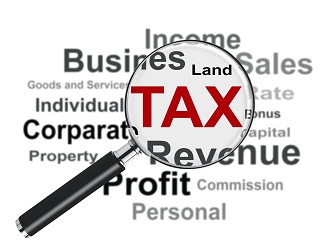
Through the complex system of taxation, the government acquires funding to manage various public institutions, infrastructure, and public services. Taxes affect businesses and individuals, and are an important part of the government’s fiscal policy. Many corporations rely on tax professionals to help resolve tax issues, determine the amount of tax applicable, and tax liability. Taxation is an important branch of finance that has evolved into a distinct academic discipline.
Taxation can be studied at undergraduate, graduate, and post graduate level. Individuals can also pursue short taxation courses to develop skills and abilities needed to conduct tax research and calculate tax liability.
A number of accredited institutions are offering tax degree programs. These programs have been described in detail below:
Bachelor of Science in Accounting – Taxation
At the undergraduate level, students interested in taxation can opt for a BS in accounting degree with concentration in taxation. The program is offered by a number of accredited schools. It is designed to equip students with numeracy skills, accounting skills, and knowledge of finance.
The program typically takes 4 years to complete and can also be pursued online. The initial semesters are dedicated to the study of fundamental concepts and theories. Students will learn about the basics of accounting practices in organizations, and the role of accounting measures. Further in the program, students may be required to choose an area for specialization. Those who are interested in taxation may take elective courses in that field. Courses with emphasis on taxation will typically include:
-
Advanced tax- corporate
-
Accounting taxation
-
Auditing
-
Intermediate accounting
Masters in Taxation
This is a two year graduate program that is designed for students interested in acquiring advanced knowledge of taxation systems and methodologies. The program is offered by numerous accounting schools. Students will gain a comprehensive understanding of the current tax laws and tax procedures.
Students will undergo a thorough study of accounting courses initially to build a strong foundation. Students must have an understanding of basic accounting principles and finance strategies. The program will cover a set of tax-related courses such as the following:
-
Tax and business taxation
-
Tax research
-
Tax research writing
-
Legal authorities in taxation
-
Tax accounting
The curriculum may vary a little from college to college. In some programs, students will also participate in a tax research project. Practical learning is vital for building skills needed for tax careers ahead. Each course, including the tax research project, will carry a defined number of credit hours. A minimum number of credit hours must be attained to complete the program successfully.
PhD in Taxation

This is the highest level of degree a student can aim for in the field of taxation. The program is typically designed for the working “tax practitioner” and can be completed in 4-8 years, depending on the institute offering the program.
The program can be divided into various sections, which must be completed successfully. The first section of the program includes coursework. Students will cover a range of subjects related to research and taxation.
Coursework
Here is a list of subjects that may be covered:
-
Tax research
-
US tax system
-
Business expense, deductions and credits
-
Taxation of corporations and shareholders
-
Tax law and treasury interpretations
-
Case analysis
-
Bankruptcy and tax planning
-
International taxation
Independent Research
Students must engage in practical tax research and undertake a research project. The research must be approved by the instructor/committee.
Dissertation
The dissertation is the final requirement of the program. The dissertation must comprehensively reflect a student’s research work, methodologies used, findings, and conclusion. The dissertation must be approved and scored by a reviewing committee.
Non-Degree Courses – Certificate in Taxation
A certificate in taxation is a short career-oriented program that provides students with practical knowledge and skill. Many working individuals are pursuing short certificate programs to enhance their skill set and improve career prospects.
The program will include a set of courses that must be covered within the given time frame. Here are a few subjects expected to be covered in the program:
-
Tax research and procedure
-
Tax policy
-
Taxation corporations
-
Judicial foundations of income tax
-
Business tax planning
Can you Study Tax Online?
Yes! You can pursue taxation programs online. Accredited online universities are offering masters in taxation online, bachelors in taxation online, and certificate programs. Students who are unable to attend campus-based classes can study online. The coursework is flexible, cost-friendly, and convenient.
Program Outcomes
-
Learn how to conduct tax research effectively
-
Identify and define tax-related issues
-
Understand the essentials of tax principles and doctrines
-
Apply tax procedures appropriately
-
Calculate corporate tax correctly
-
Have basic understanding of IRS practices
-
Be proficient at tax planning
How to Enroll in a Degree in Taxation?
The requirements will vary and also depend on which program an applicant wants to enroll in. For example, students interested in enrolling in a master’s degree in taxation must provide the official transcript of their bachelor’s degree. General requirements include:
-
Meeting a minimum CGPA requirement
-
Providing letters of recommendation
-
Work experience
Employment
With a degree in taxation, you may qualify for tax-related positions in financial corporations, federal agencies, and private organizations. The level of degree you have earned will also impact your career opportunities. For example, a BS in Taxation may land you an entry-level job whereas a PhD can get you employed at the executive level in an organization. Here are a few job descriptions and median annual income provided by the US Bureau of Labor Statistics:
Tax Examiners and Collectors - $50,440 (2012)
-
Review filed tax returns
-
Conducts field audits
-
Manage records
-
Evaluate financial information
-
Investigate tax returns and tax liabilities
Tax Preparers - $35,990 (2014)
-
Prepare tax returns for businesses and individuals
-
Review financial records to determine tax liability and returns
-
Apply taxation principles and methods
Pursuing a degree in taxation can lead to many challenging career opportunities in the corporate world. Since tax policies change from time to time, the demand for competent tax professionals remains steady. One can also improve career prospects through continuing education and certification.